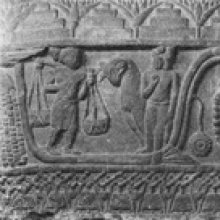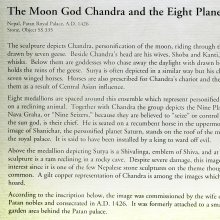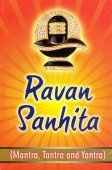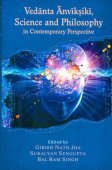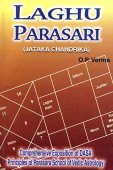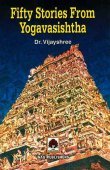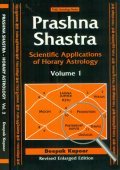Ram, Rāṃ, Raṃ: 17 definitions
Introduction:
Ram means something in Buddhism, Pali, Hinduism, Sanskrit, the history of ancient India, Marathi, Hindi. If you want to know the exact meaning, history, etymology or English translation of this term then check out the descriptions on this page. Add your comment or reference to a book if you want to contribute to this summary article.
Images (photo gallery)
In Hinduism
Ayurveda (science of life)
Source: Google Books: Exploring Mantric AyurvedaRaṃ; the seed-syllable for fire. Raṃ is a Pitta increasing mantra.

Āyurveda (आयुर्वेद, ayurveda) is a branch of Indian science dealing with medicine, herbalism, taxology, anatomy, surgery, alchemy and related topics. Traditional practice of Āyurveda in ancient India dates back to at least the first millenium BC. Literature is commonly written in Sanskrit using various poetic metres.
Vyakarana (Sanskrit grammar)
Source: Wikisource: A dictionary of Sanskrit grammarRam (रम्).—Augment र (ra) inserted after the vowel अ (a) of the root भ्रस्ज् (bhrasj), when the letter र् (r) which is already present in भ्ररुज् (bhraruj) (before अ) and the penultimate स् (s) are dropped; the result is that the word भर्ज् (bharj), in short, becomes substituted in the place of भ्रस्ज्ः (bhrasjḥ) cf. भ्रस्जो रोपधयो रमन्यतरस्याम् (bhrasjo ropadhayo ramanyatarasyām) P.VI. 4.47, and भ्रस्जो रोपधयोर्लोप आगमो रम् विधीयते (bhrasjo ropadhayorlopa āgamo ram vidhīyate) as Bharadvajiya Varttika thereon.

Vyakarana (व्याकरण, vyākaraṇa) refers to Sanskrit grammar and represents one of the six additional sciences (vedanga) to be studied along with the Vedas. Vyakarana concerns itself with the rules of Sanskrit grammar and linguistic analysis in order to establish the correct context of words and sentences.
General definition (in Hinduism)
Source: Wisdom Library: Hinduism“Raṃ” is the bīja-mantra for agni or tejas, (“fire”).
In Buddhism
Tibetan Buddhism (Vajrayana or tantric Buddhism)
Source: OSU Press: Cakrasamvara SamadhiRāṃ (रां) is the bīja associated with Rāmeśvarī, according to the Cakrasaṃvara-maṇḍala or Saṃvaramaṇḍala of Abhayākaragupta’s Niṣpannayogāvalī, p. 45 and n. 145; (Cf. Cakrasaṃvaratantra, Gray, David B., 2007).—The Cakrasaṃvara mandala has a total of sixty-two deities. [...] Three concentric circles going outward, the body, speech and mind wheels (kāya-vāka-citta), in the order: mind (blue), speech (red), and body (white), with eight Ḍākinīs each in non-dual union with their Ḍākas, "male consorts".
Associated elements of Kharvarī and Amitābha:
Circle: kāyacakra (mind-wheel) (blue);
Ḍākinī (female consort): Kharvarī;
Ḍāka (male consort): Amitābha;
Bīja: rāṃ;
Body-part: glabella;
Pīṭha: Rāmeśvarī;
Bodily constituent: asthīni (bones);
Bodhipakṣa (wings of enlightenment): vīryendriya (faculty of effort).
The Ram is associated with the Yoginī (female deity) named Bheḍī, being situated in the Medinīcakra, according to the 10th century Ḍākārṇava-tantra: one of the last Tibetan Tantric scriptures belonging to the Buddhist Saṃvara tradition consisting of 51 chapters.—Accordingly, the medinīcakra refers to one of the three divisions of the dharma-puṭa (‘dharma layer’), situated in the Herukamaṇḍala. The 36 pairs of Ḍākinīs [viz., Bheḍī] and Vīras are yellow in color; the shapes of their faces are in accordance with their names [e.g., Ram]; they have four arms; they hold a skull bowl, a skull staff, a small drum, and a knife.

Tibetan Buddhism includes schools such as Nyingma, Kadampa, Kagyu and Gelug. Their primary canon of literature is divided in two broad categories: The Kangyur, which consists of Buddha’s words, and the Tengyur, which includes commentaries from various sources. Esotericism and tantra techniques (vajrayāna) are collected indepently.
India history and geography
Source: Shodhganga: A translation of Jhaverchand Meghanis non translated folk talesRam refers to “A Hindu god, the son of the king Dasratha and husband of Sati Sita”.—It is defined in the glossary attached to the study dealing with Gujarat Folk tales composed by Gujarati poet Jhaverchand Meghani (1896-1947)
Source: Singhi Jain Series: Ratnaprabha-suri’s Kuvalayamala-katha (history)Rams were commonly depicted on the Saṃsāracakra paintings (representing scenes of human life), in ancient India, as mentioned in the Kathās (narrative poems) such as Uddyotanasūri in his 8th-century Kuvalayamālā (a Prakrit Campū, similar to Kāvya poetry).—Page 185.21 f.: Here follows a description of a printed scroll illustrating the Jaina conception of saṃsāracakra. [...] The saṃsāra-cakra illustrated the three worlds of hell, human world and the world of gods. [For example:] A young boy amusing himself with the fight of cocks, male parrots, rams; a young man enjoying the company of young girls and maidens.

The history of India traces the identification of countries, villages, towns and other regions of India, as well as mythology, zoology, royal dynasties, rulers, tribes, local festivities and traditions and regional languages. Ancient India enjoyed religious freedom and encourages the path of Dharma, a concept common to Buddhism, Hinduism, and Jainism.
Languages of India and abroad
Marathi-English dictionary
Source: DDSA: The Aryabhusan school dictionary, Marathi-Englishrāṃ (रां).—or-
--- OR ---
rāṃ (रां).—or-
--- OR ---
rāṃ (रां).—or-
Marathi is an Indo-European language having over 70 million native speakers people in (predominantly) Maharashtra India. Marathi, like many other Indo-Aryan languages, evolved from early forms of Prakrit, which itself is a subset of Sanskrit, one of the most ancient languages of the world.
Sanskrit dictionary
Source: Cologne Digital Sanskrit Dictionaries: Shabda-Sagara Sanskrit-English DictionaryRam (रम्).—[(au, u) auramu] r. 1st. cl. (ramate) 1. To sport or play. 2. To rest, to stay. 3. To be pleased. 4. To have sexual intercourse with. With abhi, To be delighted. With some prefixes this root forms an active verb, as with āṅ, upa and vi; āramati to rest, to repose, &c.; with upa the form is optional, if the sense is intransitive, as (uparamati or te) 1. To stop or cease. 2. To desist from. 3. To die. Caus. (ramayati-te) To amuse, to please.
Source: Cologne Digital Sanskrit Dictionaries: Benfey Sanskrit-English DictionaryRam (रम्).—i. 1, [Ātmanepada.] (in poetry also [Parasmaipada.], [Mānavadharmaśāstra] 2, 223), in the Veda also ii. 9, [Parasmaipada.] 1. To rest, [Mānavadharmaśāstra] 3, 251; to like to stay, [Hitopadeśa] ii. [distich] 128. 2. To be delighted, [Pañcatantra] i. [distich] 429; to rejoice, [Rāmāyaṇa] 2, 34, 50; [Vikramorvaśī, (ed. Bollensen.)] 19, 1 (raṃsyate bhavatā, impers. pass. You will be glad), 70, 21. 3. To rejoice at, with loc., [Daśakumāracarita] in
— With the prep. anu anu, anurata, 1. Fond of, attached to. 2. Beloved.
— With abhi abhi, To be delighted, to rejoice, [Rāmāyaṇa] 2, 27, 18. abhirata, 1. Intent upon,
— With ava ava, avarata, Stopped, ceased. Comp. An-, adj. uninterrupted, [Vedāntasāra, (in my Chrestomathy.)] in
— With ā ā, [Parasmaipada.] 1. To repose, [Bhaṭṭikāvya, (ed. Calc.)] 3, 38. 2. To cease, [Mānavadharmaśāstra] 2, 73. 3. To take pleasure, [Mānavadharmaśāstra] 4, 175. anata, Ceased, [Kirātārjunīya] 5, 6.
— With upā upa-ā, 1. To repose, Mahābhārata 1, 6035. 2. To cease, [Raghuvaṃśa, (ed. Stenzler.)] 16, 3 (Calc.). 3. To rejoice, to dally, Mahābhārata 1, 4183.
— With upa upa, [Parasmaipada.] [Ātmanepada.] 1. To cease,
— With vyupa vi-upa, vyuparata, Interrupted, stopped, [Mṛcchakaṭikā, (ed. Stenzler.)] 1, 2.
— With ni ni, nirata, 1. Pleased, satisfied, [Mānavadharmaśāstra] 3, 45. 2. Attached to (with loc.), loving, [Uttara Rāmacarita, 2. ed. Calc., 1862.] 57, 5; faithful, [Rāmāyaṇa] 3, 48, 18. 3. Engaged in, practising, [Nala] 6, 10 (a-hiṃsā-, benevolence).
— With pari pari, [Parasmaipada.] To be delighted, [Bhaṭṭikāvya, (ed. Calc.)] 8, 53.
— With vi vi, 1. To cease, [Uttara Rāmacarita, 2. ed. Calc., 1862.] 17, 6; with the ptcple. of the pres. in the sense of the infin., [Pañcatantra] 93, 16. 2. To desist, [Mānavadharmaśāstra] 4, 97. 3. To cease from, desist from (with abl.), [Vikramorvaśī, (ed. Bollensen.)] [distich] 39; [Pañcatantra] 161, 1. virata, Stopped, ceased, [Śiśupālavadha] 9, 12. Comp. A-, adj. 1. uninterrupted, [Kirātārjunīya] 5, 6. 2. eternal.
— With sam sam, To rejoice, [Bhaṭṭikāvya, (ed. Calc.)] 19, 30.
— Cf. [Old High German.] rāwa, ruowa (i. e. *ram + van, cf. acc. sing. ruouun), rāwên ([denominative.]), resti, rastjan; [Anglo-Saxon.] rest, restan;
Source: Cologne Digital Sanskrit Dictionaries: Cappeller Sanskrit-English DictionaryRam (रम्).—ramate ramati ramṇāti [participle] rate (q.v.) tr. stop, fix, settle; gladden, delight, enjoy ([especially] carnally); [intransitive] stop, rest, stay gladly with ([locative] or [dative]); delight in, be pleased with or to ([locative], [instrumental], or infin.); be happy or content; dally or have sexual intercourse with ([instrumental] ±samam, saha, sākam, or sārdham). [Causative] ramayati or rāmayati = [Simple] [transitive]
Source: Cologne Digital Sanskrit Dictionaries: Monier-Williams Sanskrit-English Dictionary1) Ram (रम्):—[class] 1. [Ātmanepada] ([Dhātupāṭha xx, 23]) ramate ([Vedic or Veda] also [Parasmaipada] ramati or ramṇāti [perfect tense] rarāma, [Mahābhārata]; reme, [Brāhmaṇa] etc.; [Aorist] 3. [plural] ranta, [Ṛg-veda]; araṃsīt, [Kāvya literature]; araṃsta, [Ṛg-veda]; raṃsiṣam, [Sāma-veda]; [future] rantā [grammar]; raṃsyati, [Brāhmaṇa]; te, [ib.] etc.; [infinitive mood] ramitum, [Mahābhārata]; rantum, [ib.] etc.; rantos, [Brāhmaṇa]; [indeclinable participle] ratvā, [ib.]; rantvā, [Kāvya literature]; -ramya or -ratya, [Pāṇini 6-4, 38]),
—to stop, stay, make fast, calm, set at rest ([Parasmaipada]; [especially] [present tense] ramṇāti), [Ṛg-veda; Vājasaneyi-saṃhitā];—([Ātmanepada] [Parasmaipada]) to delight, make happy, enjoy carnally, [Mahābhārata; Harivaṃśa; Śukasaptati];
— ([Ātmanepada]) to stand still, rest, abide, like to stay with ([locative case] or [dative case]), [Ṛg-veda] etc. etc.;—([Ātmanepada]; [Parasmaipada] only mc.)
—to be glad or pleased, rejoice at, delight in, be fond of ([locative case] [instrumental case] or [infinitive mood]), [Ṛg-veda] etc. etc.;
—to play or sport, dally, have sexual intercourse with ([instrumental case] with or without samam, saha, sākam or sārdham), [Chāndogya-upaniṣad; Mahābhārata] etc.;
—to couple (said of deer), [Pāṇini 3-1, 26], [vArttika] 8, [Patañjali] (cf. [Causal]);
—to play with id est. put to stake ([instrumental case]), [Bhaṭṭi-kāvya] :—[Causal] ramayati or rāmayati ([Aorist] arīramat), to cause to stay, stop, set at rest, [Ṛg-veda; Taittirīya-saṃhitā; Pañcaviṃśa-brāhmaṇa; Kātyāyana-śrauta-sūtra];
— (ramayati, mc. also te) to gladden, delight, please, caress, enjoy carnally, [Mahābhārata; Kāvya literature] etc. (3. sg. ramayati-tarām, [Ratnāvalī iii, 9]);
—to enjoy one’s self, be pleased or delighted, [Mahābhārata; Harivaṃśa];—mṛgān ramayati, he tells that the deer are coupling, [Pāṇini 3-1, 26], [vArttika] 8, [Patañjali] :—[Desiderative] in riraṃsā, su q.v.:—[Desiderative] of [Causal] in riramayiṣu q.v.: Intesis. raṃramyate or raṃramīti[Pāṇini 7-4, 85.]
2) cf. [Zend] ram, [Greek] ἠρέμα, ἔραμαι, ἐρατός; [Lithuanian] rimti; [Gothic] rimis.
Source: Cologne Digital Sanskrit Dictionaries: Yates Sanskrit-English DictionaryRam (रम्):—(ṅa, au, u) ramate 1. d. To sport, play. With ā, upa or vi to rest, stop.
Source: DDSA: Paia-sadda-mahannavo; a comprehensive Prakrit Hindi dictionary (S)Ram (रम्) in the Sanskrit language is related to the Prakrit words: Ubbhāva, Kilikiṃca, Koṭaṭuma, Kheḍḍa, Ṇisara, Moṭṭāya, Rama, Vella, Saṃkhuḍḍa.
[Sanskrit to German]
Sanskrit, also spelled संस्कृतम् (saṃskṛtam), is an ancient language of India commonly seen as the grandmother of the Indo-European language family (even English!). Closely allied with Prakrit and Pali, Sanskrit is more exhaustive in both grammar and terms and has the most extensive collection of literature in the world, greatly surpassing its sister-languages Greek and Latin.
Hindi dictionary
Source: DDSA: A practical Hindi-English dictionaryRam in Hindi refers in English to:—(nm) Ramchandra-the greatest of the ancient Indian kings of Solar dynasty and the hero of the great Indian epic—Ramayan; God, an incarnation of Vishnu; ~[kahani] a tale of woe; long narration of events of one’s own life; ~[dhama] the abode of Ram—Ayodhya:; the paradise; ~[navami] the birthday of Ram-the ninth day of the bright fortnight of [caita; ~nami] an overall cover cloth with the name of Ram written all over; ~[bana] a panacea, an unfailing remedy, sure cure; ~[raja] yellow ochre; ~[rasa] salt; ~[rajya] the rule of Ram—golden rule; just, equitable and ideal, rule; Utopia; -[rama] a form of mutual salutation; Good God!, an interjectional utterance expressive of hate, surprise, indignation, etc.; •[karake/0 kahakara] somehow, with great difficulty; ~[lila] a celebration involving enactment of the exploits and adventures of Ram; -[ka nama lo] Think of Heavens ! What do you talk ! It's just absurd; -[jane] God (alone) knows; -[nama satya hai] lit. the name of God alone is true—a saying repeatedly chanted during a Hindu funeral procession; —[bharose chodana] to let things go as they may, a hostage to fortune; —[bharose jo rahe mara sake na koya] what God will, no frost can kill; —[rama japana paraya mala apana] a robber in a saint’s garb..—ram (राम) is alternatively transliterated as Rāma.
...
See also (Relevant definitions)
Starts with (+1438): Rajamavu, Ram ban, Ram bans, Ram citta, Ram dana, Ram goat, Ram jakhola, Ram jata, Ram kurthi, Ram kurti, Ram Ram, Ram sara, Ram til, Ram tulosi, Ram tulsi, Ram-ai-eng, Ram-anhling, Ram-babul, Ram-bui, Ram-fighting.
Ends with (+4798): A-cantirataram, A-carpattiram, A-ciranacuram, A-pirakirutacariram, Aadi pooram, Aanaipuliya maram, Aannamaram, Aaram, Aavali maram, Abandhuram, Abhikram, Abhinasikavivaram, Abhinikram, Abhinishkram, Abhiprakram, Abhiram, Abhisamsaram, Abhisaram, Abhishram, Abhisthiram.
Full-text (+2152): Mesha, Hudu, Hunda, Jharajhara, Urabhra, Anashvara, Ajaidaka, Ciracira, Taratara, Tharara, Anatura, Kaidara, Nirbhara, Prithudara, Apratikara, Tagara, Sahuda, Dushkara, Catvara, Tharathara.
Relevant text
Search found 170 books and stories containing Ram, Rāṃ, Raṃ; (plurals include: Rams, Rāṃs, Raṃs). You can also click to the full overview containing English textual excerpts. Below are direct links for the most relevant articles:
The Jataka tales [English], Volume 1-6 (by Robert Chalmers)
Jataka 324: Cammasāṭaka-jātaka < [Volume 3]
Jataka 115: Anusāsika-jātaka < [Book I - Ekanipāta]
Jataka 347: Ayakūṭa-jātaka < [Volume 3]
Vakyapadiya of Bhartrihari (by K. A. Subramania Iyer)
Verse 3.7.140 < [Book 3 - Pada-kāṇḍa (7): Sādhana-samuddeśa (On the Means)]
Verse 3.7.141-142 < [Book 3 - Pada-kāṇḍa (7): Sādhana-samuddeśa (On the Means)]
Verse 1.7 < [Book 1 - Brahma-kāṇḍa (or Āgama-samuccaya)]
Egypt Through The Stereoscope (by James Henry Breasted)
Position 52 - Grand Avenue Of Rams, One Of The Southern Approaches To The Temples Of Karnak, Thebes < [Standpoints In Egypt]
Position 55 - Avenue Of Sacred Rams, Leading From The River To The Western Entrance Of The Karnak Temple (after Excavation) < [Standpoints In Egypt]
Position 54 - Excavating The Famous Avenue Of Rams, Southeast To The Temple Of Karnak, Thebes < [Standpoints In Egypt]
Shat-cakra-nirupana (the six bodily centres) (by Arthur Avalon)
Ramayana (by Manmatha Nath Dutt)
Chapter XLIX < [Book 1 - Bāla-kāṇḍa]
Sahitya-kaumudi by Baladeva Vidyabhushana (by Gaurapada Dāsa)
Text 9.44 [zig-zag diagram] < [Chapter 9 - Ornaments of Sound]
Text 10.251 < [Chapter 10 - Ornaments of Meaning]
Text 7.57 < [Chapter 7 - Literary Faults]
Related products
(+4 more products available)
